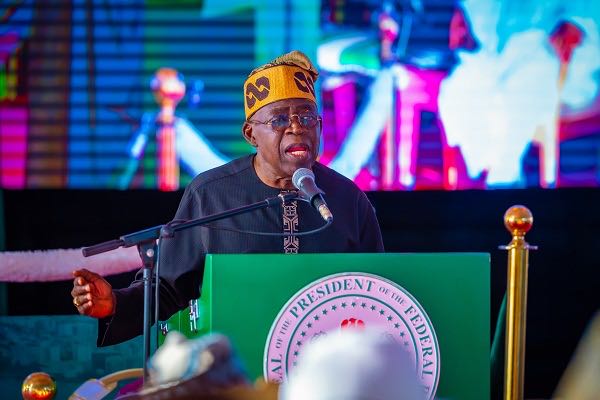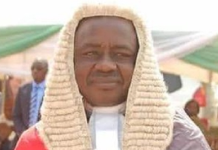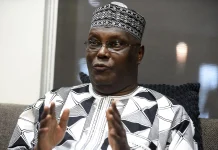

The Federal Government has borrowed a total of $4.95bn in loans from the World Bank in the past 12 months, pushing the total public debt to N101tn amidst worries about the increasing costs of servicing external debt.
The nation’s public debt was put at approximately N97tn as of December 2023, according to the Debt Management Office data.
This came as the government still expects fresh loan approval worth $4.4bn from the international lender and the Africa Development Bank over the next one year.
An analysis by our correspondent showed that the bank approved funding for six projects including $750m for power sector financing, $500m for women empowerment, $700m for girl child education, $750m for renewable energy solutions, $750m on resource mobilisation reforms and $1.5bn for economic stabilisation reforms.
Findings by The According showed that on June 9, 2023, the World Bank board approved a loan of $750m to boost Nigeria’s power sector. The bank said the loan would serve as additional financing for the power sector recovery performance-based operation.
It also announced the approval of a loan of $500m on June 27, 2023to help Nigeria drive women’s empowerment. This was the second loan approved by the bank under the current administration. It provided a scale-up financing for the Nigeria for Women Programme.
In September 2023, the World Bank approved a loan of $700m to bolster educational opportunities and empowerment for adolescent girls in Nigeria. The loan was to support the ongoing ‘Adolescent Girls Initiative for Learning and Empowerment project. It aimed to encourage secondary education accessibility for girls residing in specific target states within Nigeria.
While $750m was authorised on December 14, 2023, for the Distributed Access through Renewable Energy Scale-up project in Nigeria, the project aims to provide over 17.5 million Nigerians with better access to electricity via distributed renewable energy solutions and tackle the electricity access deficit.
The latest was a sum of $2.25bn comprising $1.5bn for reforms on Economic Stabilisation to Enable Transformation Development Policy Financing Programme. It is meant to increase fiscal oil revenues to 2.7 per cent by 2025, boost non-oil fiscal revenues, expand social safety nets to assist 67 million vulnerable Nigerians and raise the import value of previously banned products. $750m was also apportioned to enhance non-oil revenues and protect oil and gas revenue.
Meanwhile, the government is expecting about $4.4bn in new loans from the World Bank and the AfDB. The government is pursuing a $500m loan to address the need for better connectivity in rural road infrastructure and agricultural marketing, a $750m loan if it reintroduces previously suspended telecom tax and other fiscal measures, and a $500m to address the challenges faced by Internally Displaced Persons nationwide. The government is also expecting about $2.7bn economic and budget support loan from the African Development Bank.
The AfDB President Akinwumi Adesina, in an interview with journalists in March said its Board of Directors approved $134m for Nigeria to implement an emergency food production plan, while talks are also ongoing for a $1.7bn economic and budget support loan as well as the launch of a $1bn agro-industrial processes in 28 states.
The World Bank, a prominent international financial institution dedicated to reducing global poverty provides loans and grants to developing countries for a wide range of projects, including infrastructure development, education, healthcare, and environmental sustainability.
However, for many Nigerians, long years of infrastructure decay and increased unemployment have triggered an increased feeling of bitterness whenever they hear the government’s intention to borrow with past borrowings is not justifiable.
Nigeria has been a top recipient of fresh loans from multilateral lenders, borrowing $2.7bn in 2023 from about $2.9bn released to the country in 2022.
Last week, the Bretton Woods Institution said its technical advisory and financing to support economic growth in Nigeria currently stands at over US$15bn affirming data from the external debt stock report of the Debt Management Office shows that Nigeria owes the World Bank a total of $15.45bn as of December 31, 2023.
President Bola Tinubu had expressed his resolute commitment to breaking the vicious cycle of overreliance on borrowing for public spending, and the resulting burden of debt servicing it places on the management of Nigeria’s limited government revenueHoweververr ver the president may not have matched his words with actions as they have sought to obtain credit facilities from both domestic and external lenders.
The soaring costs of servicing foreign debt have significant implications for Nigeria’s economy. The increased debt burden could potentially divert resources away from critical sectors such as healthcare, education, and infrastructure, exacerbating socio-economic challenges.
Join Television Nigerian Whatsapp Now
Join Television Nigerian Facebook Now
Join Television Nigerian Twitter Now
Join Television Nigerian YouTUbe Now





